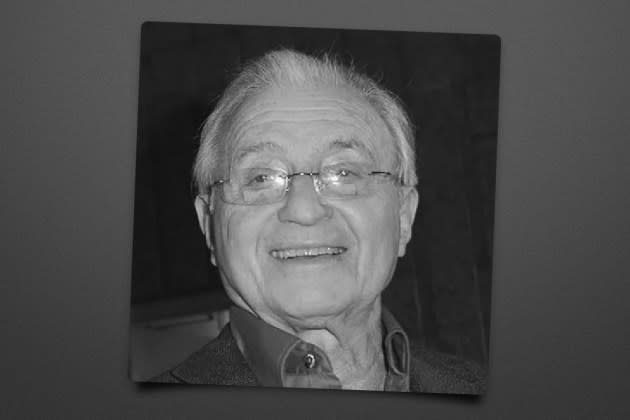Victor J. Kemper, Cinematographer on ‘Dog Day Afternoon’, ‘Husbands’ and ‘The Jerk,’ Dies at 96
- Oops!Something went wrong.Please try again later.
- Oops!Something went wrong.Please try again later.
- Oops!Something went wrong.Please try again later.
- Oops!Something went wrong.Please try again later.
- Oops!Something went wrong.Please try again later.
- Oops!Something went wrong.Please try again later.

Victor J. Kemper, the veteran cinematographer who shot more than 50 features, including Dog Day Afternoon, Eyes of Laura Mars, The Jerk and Slap Shot, has died. He was 96.
Kemper died Monday of natural causes in Sherman Oaks, his son, Steven Kemper, told The Hollywood Reporter.
More from The Hollywood Reporter
Kemper earned his inaugural D.P. credit on Husbands (1970), written and directed by John Cassavetes, then shot Elia Kazan’s final feature, The Last Tycoon (1976) and Tim Burton’s first, Pee-wee’s Big Adventure (1985).
Kemper also did six films for director Arthur Hiller — The Tiger Makes Out (1967), The Hospital (1971), Author! Author! (1982), The Lonely Guy (1984), See No Evil, Hear No Evil (1989) and Married to It (1991) — and three in a row for Carl Reiner: Oh God! (1977), The One and Only (1978) and The Jerk (1979).
The New Jersey native said he had to wear ice skates when he photographed the hockey scenes in George Roy Hill’s Slap Shot (1977) and frequently found himself the victim of a practical joke when the actors who played the Hanson brothers (Jeff Carlson, Steve Carlson and David Hanson) used their sticks to trip him.
The heady list of directors with whom Kemper also worked during his four-decade career included Michael Ritchie on The Candidate (1972), Peter Yates on The Friends of Eddie Coyle (1973), Sidney Lumet on Dog Day Afternoon (1975), Elaine May on Mikey and Nicky (1976), Robert Wise on Audrey Rose (1977), Irvin Kershner on Eyes of Laura Mars (1978) and Norman Jewison on … And Justice for All (1979).
Kemper was adept at various genres but showed a particular flair for comedy on Last of the Red Hot Lovers (1972), National Lampoon’s Vacation (1983), Mr. Mom (1983), Beethoven (1992), Tommy Boy (1995) and Jingle All the Way (1996).
Kemper served as president of the American Society of Cinematographers from 1993-96 and 1999-2001 and received the guild’s Lifetime Achievement Award in 1998.
Born in Newark on April 14, 1927, Kemper graduated from Seton Hall University — he had built the radio station there — and was hired by a local television station, where he operated a sound boom, mixed sound and served as technical director for live studio programs.
His boss denied his request to take a couple of weeks off to go to California to train in the use of videotape, which had recently been invented — so he quit.
In 1954, Kemper landed a job as a video camera operator for EUE, a television commercial production company in New York, then went to work as an assistant cameraman and operator for top cinematographers including Arthur Ornitz.
On his very first day on Husbands — he came on after the original DP, Aldo Tonti, decided to leave after a week — Kemper was challenged to light a scene in a men’s bathroom in which the walls were painted black and all the actors in it were wearing black overcoats for a funeral.
“Cassavetes came out on the set and wished me good luck on my first time out,” he recalled in a 2009 interview. “I said, ‘John, will you please tell me how do you expect me to light this set?’ … He said very simply, ‘You’re the cinematographer, I’m the director, you figure it out,’ and he walked away. That’s how I got thrown in head-first into the steaming hot water.”
They spent 12 weeks in New York and 10 in London shooting Husbands, double the time that was budgeted. “Cassavetes was always more interested in getting the film right,” he said, “than worried about the dollars spent.”
Kemper’s film résumé also included They Might Be Giants (1971), Who Is Harry Kellerman and Why Is He Saying Those Terrible Things About Me? (1971), The Gambler (1974), Stay Hungry (1976), Coma (1978), Magic (1978), Xanadu (1980), The Four Seasons (1981) and Clue (1985).
He was nominated for an Emmy for his work on the 1987 CBS telefilm Kojak: The Price of Justice and shot the acclaimed 1985 CBS miniseries The Atlanta Child Murders.
In addition to his son, survivors include his wife of 70 years, Claire; daughters Jan and Florence; and grandchildren Margaret, Daniel and Jordan.
Kemper said that his job required a bit of instinct.
“Part of being a cinematographer is learning the craft,” he said in 2008 when he was named a cinematographer in residence at UCLA. “But there is also something that whispers in your ear and tells you to move the camera a foot in a particular direction while putting a face in shadows and a sparkle in someone’s eyes.”
Best of The Hollywood Reporter
Martin Scorsese’s 10 Best Movies Ranked, Including 'Killers of the Flower Moon'
13 Times Hollywood Predicted the Scary (or Not So Scary) Future of AI

